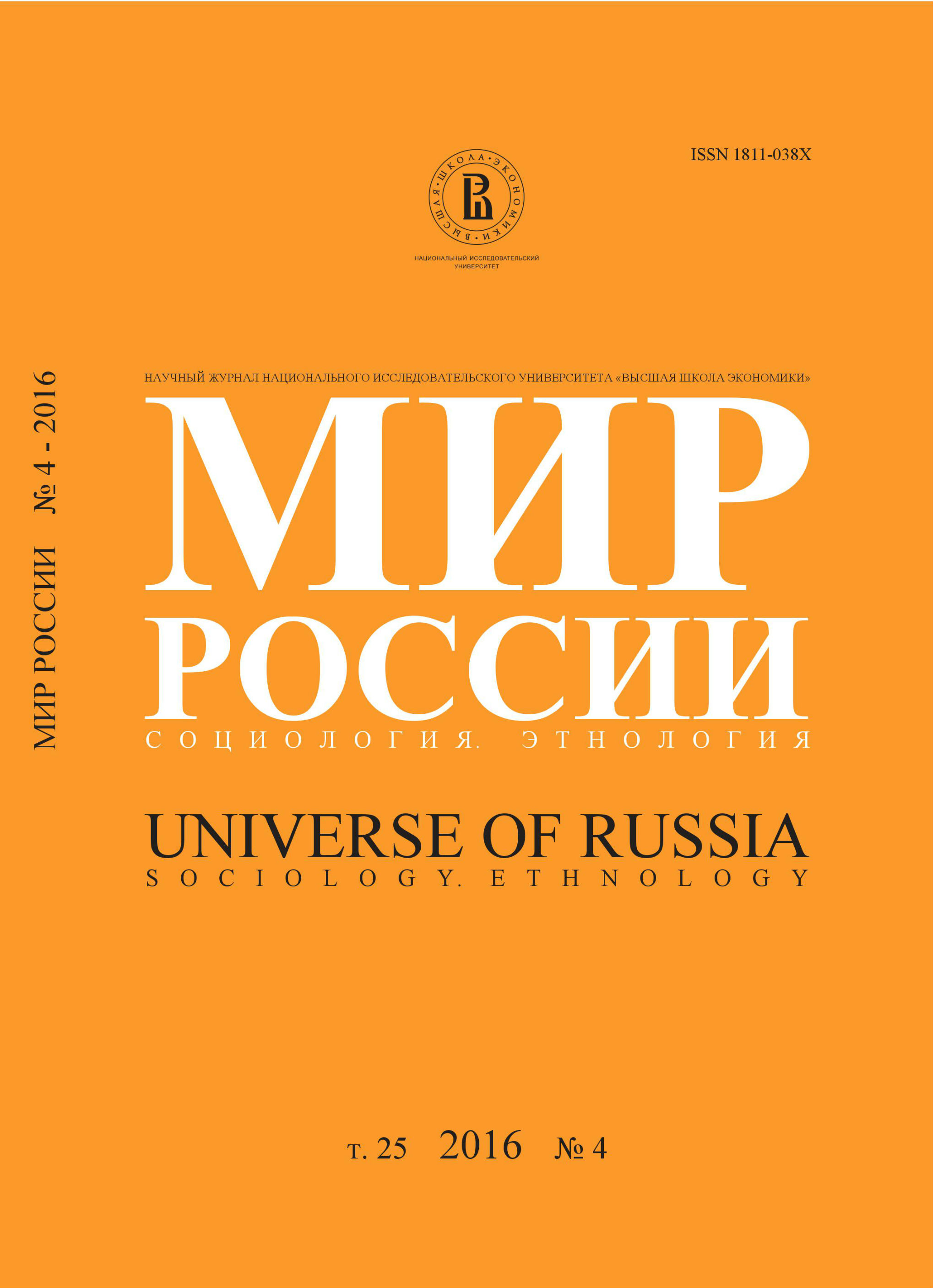Adult Education in Russia: the Dynamics of Scale and Economic Efficiency (2000–2013)
Abstract
Dmitry Didenko — Senior Analyst, State Corporation «Bank for Development and Foreign Economic Affairs (Vnesheconombank)». Address: 9 Academician Sakharov Av., Moscow, 107996, Russian Federation. E-mail: ddidenko@bloomberg.net
Zlata Dorofeeva — Researcher, Higher School of Economics. Address: 4/2 Slavyanskaya Sq., Moscow, 109074, Russian Federation. E-mail: zdorofeeva@hse.ru
This article presents estimates of the level of participation of Russians in adult vocation- al training, as well as the educational efficiency in terms of employees’ private returns on education in the light of the post-industrial modernization of the Russian education. Spe- cial attention is paid to changes which have occurred in this sphere under the influence of the financial crisis and the subsequent stagnation of the Russian economy (2008–2013), compared to the recovery period of economic growth in the 2000s. Our research is based on data from the Russian Longitudinal Monitoring Survey (RLMS).
Our findings confirm that the earnings of those who participated in adult vocational training initially grew faster than the earnings of those who did not. The returns on adult education were moderately and negatively affected by the crisis and the stagnation of the Russian economy. This is also revealed in the prolonged decrease of participation in adult vocational training and the growing uncertainty of its outcomes. These findings are discussed in contrast to the results found in the literature.
In discussing our findings we draw attention to the minor role played by the corporate sector in financing adult vocational training in modern Russia, compared with Russia’s late Soviet period and with the situation in developed countries. To explain this phenomenon we employ theoretical models by Becker, and Acemoglu and Pischke who explain the distribution of investment in general and specific parts of human capital by specific labour market configurations (e.g. state regulation of employment and skill premiums, level of inter-firm mobility). We conclude that adult vocational training in Russia features both positive and negative trends, and emphasize the constraints which limit the successful post-industrial educational modernization in Russia.






